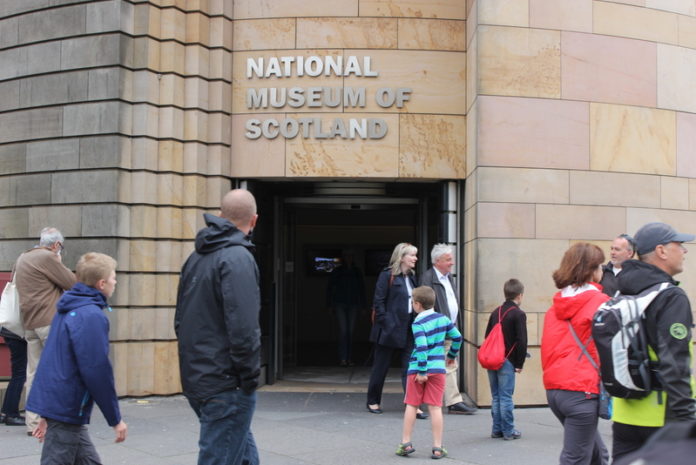“The Euskadi Orchestra was meant to be the Basque National Orchestra, since that was its vocation when we founded it. Unfortunately, we gave in on the name”
Former autonomic president Carlos Garaikoetxea.
The Basque Country is a stateless European nation, a Nation building on the culture of the oldest people known in Europe yet. The national feeling of the Basque people sinks deep its roots in time. The texts of Father Larramendi exude a national feeling; furthermore, he proposes the establishment of a Basque republic, the Republic of United Pyrenean Provinces reuniting the seven Basque historic districts. Evidence testifying to and demands for a Basque nation based on Basque language are recurrent since the late 18th century through all the 19th century. Two quotes retrieved by Asisko Urmeneta in his new book AztiHitza. Xahoren biografikoa may well illustrate them: “The feelings of happiness inherent to liberty and perfect equality are conspicuously apparent in the identity of the Basque nation: I have not known yet a nation in which its population, and not a social elite minority, constitutes its driving force. In other nations, the population represent nothing but an inert mass” (Wilhem von Humboldt, Germany, 1801, page 5). “The Basques have afforded us a fabulous lesson: the people have sidelined their individual interests in order to achieve a national collective ideal” (August von Goeben, Prusia, 1842, page 6) Numerous more examples attest to this historic position held by the Basques in support of their nation and the republic, but we would be going off-topic.
So what about the situation today? Not without difficulties, the Basque national sentiment remains rooted among its people, despite the reduced number of initiatives in its support. Actually, that national aspiration is not apparent in the social life, given the fact that our political elites have opted to ignore it. Yes, the parties self-identified as Basque nationalist make up for a majority in the parliament of the western Basque Autonomous Community with a seat in Gasteiz (Vitoria), but its government does not translate its views into political action. The political practice conducted by the Gasteiz government conceives culture as a device for consumption and tourism, allocating millions of Euros for initiatives that fail to contribute anything from a national point of view. Actually, initiatives highlighting Basque nation, initiatives that embrace the national identity of the Basque Country, are virtually non-existent in the western Basque Country, let alone in the eastern or northern areas.
Summarizing, the majority in the Parliament of Gasteiz does not have an effect in the collective imaginary of our People, since we have major deficiencies when it comes to national elements and symbology both at individual or collective level. NAZIOGINTZA has often emphasized the relevance of symbolic elements as pivotal in bolstering national identity. By means of symbols we reassert our collective identity, we define ourselves, we guarantee our internal cohesion, and express our identity before others. All nation states across the world are equipped with strong symbolic references that distinguish them from other states and provide collective bonds for its citizens. Also, stateless peoples with a strong national identity, such as the Catalans, tend to stress this symbolic universe. They raise these native symbolic elements, ranging from the flag or national anthem to the name assigned to civic organizations, to all levels of society and public institutions, e.g. ANC or Assemblea Nacional Catalana.
On our stays in Catalonia, we could attest that a “Teatre NACIONAL de Catalunya” exists, for one, and also the “Museu d’Art NACIONAL de Catalunya”, or the “Arxiu NACIONAL de Catalunya”. On our stay at Edinburgh, Scotland, we bore witness to the “NATIONAL Library of Scotland”, as well as the “NATIONAL Museum of Scotland”. Wales treasures the “NATIONAL Library of Wales-Llyfrcell Cenedlaethol Cymru” in Aberystwyth, and the “NATIONAL Assembly of Wales-Cynulliad Cenedlaethol Cymru” in Cardiff, as we could confirm in a visit.
What then about the Basque Country? Disappointingly, our People shows a barren scene with respect to institutions bearing a national name. We are lacking in museums, libraries, archives or institutions of a national extent or name, and the few national institutions we treasure, the ones encompassing the full seven Basque territories, avoid ‘national’ in their names, so ignoring an important symbolic element. For example, Eusko Ikaskuntza, Euskaltzaindia, Udalbiltza, Ikastolen Elkartea, AEK, Bertsozale Elkartea, Udako Euskal Unibertsitatea…. In order to fully believe what we are, we need to get down to practice. If we aspire to a national dimension, let us start by modifying the name of our institutions, as several other advanced stateless Peoples did long ago.
As the saying goes in Basque, “whatever has a name, has an essence”, so these institutions should be referential also technically; each institution should stand for the main authority in its domain. So, for example, the National Historic Archive should be the referential site for every person who carries out historic research.
The Basque Summer University could be modulated into “Basque NATIONAL University”. The Assembly of Basque Municipalities, Udalbiltza, may well be called the “NATIONAL Assembly of Municipalities and Local Representatives of the Basque Country”, “NATIONAL Football Team”, etc. Incidentally, why was the latest Basque Troubadour (Bertsolari) Contest of the Basque Country called “Main Troubadour Contest” in 2017? Why not “National Troubadour Contest of the Basque Country”? The Biscay Troubadour Contest, the Navarre Troubadour Contest, or the Araba Troubadour Contest bears the name of the territory. By contrast, the “Main Troubadour Contest” integrating contenders from all seven Basque territories does not. Does not that attitude transpire that we do not believe we are a nation? We need to think national, and that should translate into institution names; if we do not do it in our political and administrative domain, we can hardly progress in terms of nation building, and Spanish and French cultural, next political assimilation will intensify.









